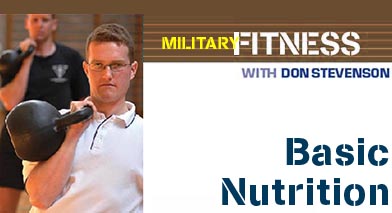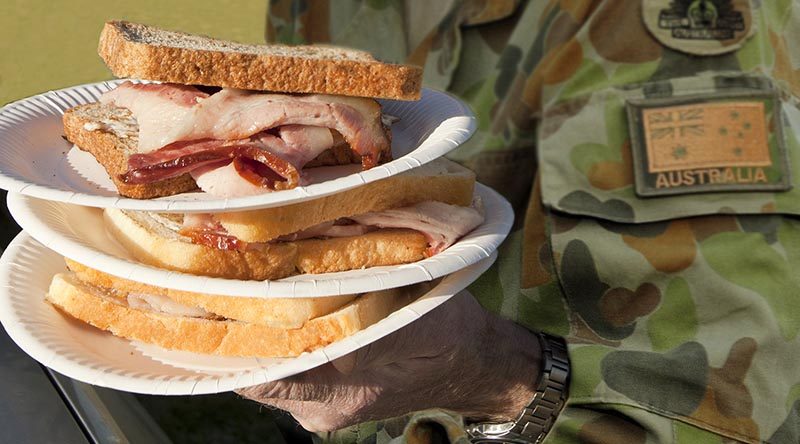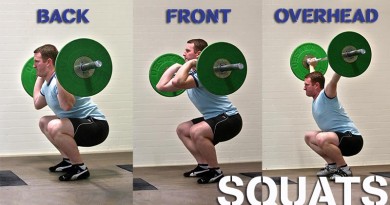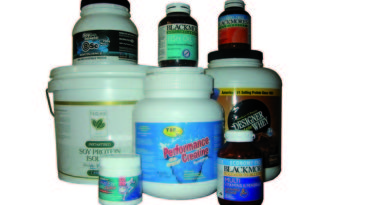Military Fitness – Part 30


At this point I thought it appropriate to review all the previous articles – and I realised two important things.
#1. These articles were spread over seven years in CONTACT magazine – and I am very grateful that they were so well received and I thank everyone who has provided feedback and;
# 2. That, apart from a few throw-away lines in an article on supplements back in instalment number 22, I have never written anything about basic nutrition for military personnel!
This is a major oversight for which I apologise and which I want to fix now, with the disclaimer that while I think the fitness industry overcomplicates diet, there is no hope of covering everything that needs to be covered in a single page.
Let’s look at some basics
Everyone knows that the food we eat fuels our body at work and at rest. Most people also understand that the proportions of fat, carbohydrate and protein we eat can have a profound affect on the amount of stored muscle and fat we have.
What is less well known is the role that manipulation of macronutrient ratios and timing can have on your training performance, lean mass gain, fat loss and recovery from training.
The correct ratio and timing of carbs, protein and fat for a person trying to lose fat may be totally inappropriate for someone trying to optimise training performance to attempt SF selection, for example.
Here are a few very basic starting points for diet and then we will move on to a couple of examples of different scenarios.
My most important piece of advice – aim to eat the least processed foods you can find.
Humans evolved eating fruits, nuts, vegetable, meat and fats, so try to avoid lots of processed foods, in particular highly refined carbs such as sugar.
Having said that, there is no need to go crazy and there is a valid place for things such as pasta, bread and so on in the diet of high-performance athletes and military personnel.
Eat a balance of protein, carbs and fat at each meal.
Protein and fat should feature in all meals and you can vary your carbohydrate intake to either fuel activity in the near future or create an energy deficit that burns fat.
Hormonal control is critical.
Most people don’t realise it but controlling your levels of hormones like insulin and glucagon has a massive impact on recovery and performance.
These hormones are controlled by what you eat.
Unless the basics are squared away, no manner of expensive pills and powders will make any difference to your performance.
For best athletic performance you need to eat the correct things before, during and after exercise.
Now let’s examine three common nutrition scenarios and consider the correct timing and ratios of macronutrients.
Fat loss
Any time you want to lose fat you need to eat a bit less than you burn and increase the amount of aerobic/anaerobic exercise you perform.
The trick to this is that even if you plan a hard training session you need to eat very little beforehand and accept that your athletic performance is not going to be optimal.
Another vital aspect of diet for fat loss is minimising insulin (a storage hormone that prevents effective fat burning) levels in the blood stream.
This can be achieved by eating protein in each meal and minimising the amount of refined carbs you eat, particularly in the morning.
Muscle Gain
If you want to gain muscle, then everyone knows that you need to eat more protein.
What most people fail to realise is that increasing overall energy intake is just as important.
Under normal circumstances, the body switches between all three macronutrients for energy, but when you are building muscle you want to provide as much energy as you can from fats and carbs and leave the protein for building structural muscle tissue.
Inevitably, if you are doing this correctly, you will put on a little fat but it is far easier to gain muscle with a little fat and then strip the fat back than it is to stay lean and just add muscle.
Most important for muscle gain is to eat protein after hard workouts and before bed.
Military fitness performance
In order to get the best strength and endurance results from your training, you need to fuel your body with a relatively high-carb, moderate-protein meal before training, fuel your body during long (1-hour +) workouts with sports drinks, and recover with a balance of protein and carbs immediately after training.
In particular, the post-workout recovery meal is perhaps the most important as there is an uptake window that exists for up to 90 minutes after a training session and eating optimally in this time allows much faster recovery so that you can train again later that day or the next.
.
.
.
.
.

.
.






